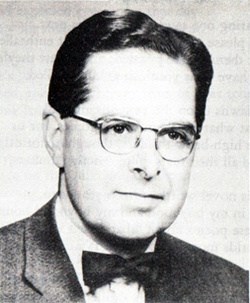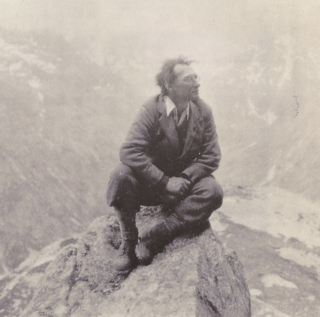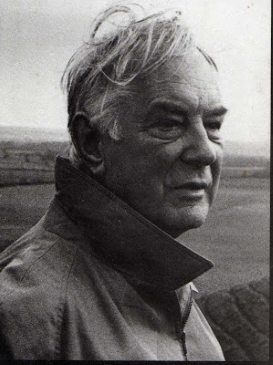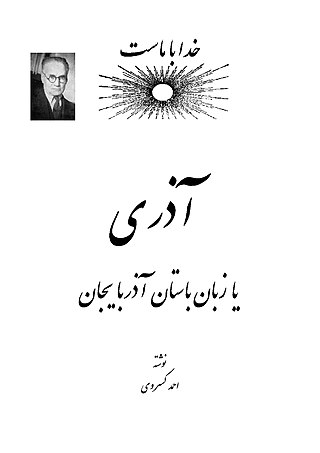
Simone Lucie Ernestine Marie Bertrand de Beauvoir was a French existentialist philosopher, writer, social theorist, and feminist activist. Though she did not consider herself a philosopher, nor was she considered one at the time of her death, she had a significant influence on both feminist existentialism and feminist theory.
Ms. or Ms is an English-language honorific used with the last name or full name of a woman, intended as a default form of address for women regardless of marital status. Like Miss and Mrs., the term Ms. has its origins in the female English title once used for all women, Mistress. It originated in the 17th century and was revived into mainstream usage in the 20th century.
Gender-neutral language is language that avoids assumptions about the social gender or biological sex of people referred to in speech or writing. In contrast to most other Indo-European languages, English does not retain grammatical gender and most of its nouns, adjectives and pronouns are therefore not gender-specific. In most other Indo-European languages, nouns are grammatically masculine or grammatically feminine, or sometimes grammatically neuter, regardless of the actual gender of the referent.

Donald Alfred Davie, FBA was an English Movement poet, and literary critic. His poems in general are philosophical and abstract, but often evoke various landscapes.

Eric Honeywood Partridge was a New Zealand–British lexicographer of the English language, particularly of its slang. His writing career was interrupted only by his service in the Army Education Corps and the RAF correspondence department during World War II.

Ivor Armstrong Richards CH, known as I. A. Richards, was an English educator, literary critic, poet, and rhetorician. His work contributed to the foundations of New Criticism, a formalist movement in literary theory which emphasized the close reading of a literary text, especially poetry, in an effort to discover how a work of literature functions as a self-contained and self-referential æsthetic object.

Routledge is a British multinational publisher. It was founded in 1836 by George Routledge, and specialises in providing academic books, journals and online resources in the fields of the humanities, behavioural science, education, law, and social science. The company publishes approximately 1,800 journals and 5,000 new books each year and their backlist encompasses over 140,000 titles. Routledge is claimed to be the largest global academic publisher within humanities and social sciences.
Feminist history refers to the re-reading of history from a woman's perspective. It is not the same as the history of feminism, which outlines the origins and evolution of the feminist movement. It also differs from women's history, which focuses on the role of women in historical events. The goal of feminist history is to explore and illuminate the female viewpoint of history through rediscovery of female writers, artists, philosophers, etc., in order to recover and demonstrate the significance of women's voices and choices in the past. Feminist History seeks to change the nature of history to include gender into all aspects of historical analysis, while also looking through a critical feminist lens. Jill Matthews states "the purpose of that change is political: to challenge the practices of the historical discipline that have belittled and oppressed women, and to create practices that allow women an autonomy and space for self-definition"

Geoffrey Edward Harvey Grigson was a British poet, writer, editor, critic, exhibition curator, anthologist and naturalist. In the 1930s he was editor of the influential magazine New Verse, and went on to produce 13 collections of his own poetry, as well as compiling numerous anthologies, among many published works on subjects including art, travel and the countryside. Grigson exhibited in the London International Surrealist Exhibition at New Burlington Galleries in 1936, and in 1946 co-founded the Institute of Contemporary Arts. Grigson's autobiography The Crest on the Silver was published in 1950. At various times he was involved in teaching, journalism and broadcasting. Fiercely combative, he made many literary enemies.

Homo Ludens is a book originally published in Dutch in 1938 by Dutch historian and cultural theorist Johan Huizinga. It discusses the importance of the play element of culture and society. Huizinga suggests that play is primary to and a necessary condition of the generation of culture. The Latin word ludens is the present active participle of the verb ludere, which itself is cognate with the noun ludus. Ludus has no direct equivalent in English, as it simultaneously refers to sport, play, school, and practice.
Materialist feminism is a theoretical current of radical feminism that was formed around the French magazine Questions féministes. It is characterized by the use of conceptual tools from Marxism—notably historical materialism—to theorize patriarchy and its abolition.
Dale Spender was an Australian feminist scholar, teacher, writer and consultant. In 1983, Dale Spender was co-founder of and editorial advisor to Pandora Press, the first of the feminist imprints devoted solely to non-fiction, committed, according to The New York Times, to showing that "women were the mothers of the novel and that any other version of its origin is but a myth of male creation". She was the series editor of Penguin's Australian Women's Library from 1987. Spender's work is "a major contribution to the recovery of women writers and theorists and to the documentation of the continuity of feminist activism and thought".
Research into the many possible relationships, intersections and tensions between language and gender is diverse. It crosses disciplinary boundaries, and, as a bare minimum, could be said to encompass work notionally housed within applied linguistics, linguistic anthropology, conversation analysis, cultural studies, feminist media studies, feminist psychology, gender studies, interactional sociolinguistics, linguistics, mediated stylistics, sociolinguistics, and feminist language reform and media studies.

Sir Stephen Harold Spender was an English poet, novelist and essayist whose work concentrated on themes of social injustice and the class struggle. He was appointed U.S. Poet Laureate Consultant in Poetry to the Library of Congress in 1965.
Radical lesbianism is a lesbian movement that challenges the status quo of heterosexuality and mainstream feminism. It arose in part because mainstream feminism did not actively include or fight for lesbian rights. The movement was started by lesbian feminist groups in the United States in the 1950s and 1960s. A Canadian movement followed in the 1970s, which added momentum. As it continued to gain popularity, radical lesbianism spread throughout Canada, the United States, and France. The French-based movement, Front des Lesbiennes Radicales, or FLR, organized in 1981 under the name Front des Lesbiennes Radicales. Other movements, such as Radicalesbians, have also stemmed off of the larger radical lesbianism movement. In addition to being associated with social movements, radical lesbianism also offers its own ideology, similar to how feminism functions in both capacities.
Equity feminism is a form of liberal feminism that advocates the state's equal treatment of women and men without challenging inequalities perpetuated by employers, educational and religious institutions, and other elements of society. The concept has been discussed since the 1980s. Equity feminism has been defined and classified as a kind of classically liberal or libertarian feminism, in contrast with social feminism, difference feminism, gender feminism, and equality feminism.
George Whalley was a scholar, poet, naval officer and secret intelligence agent during World War II, CBC broadcaster, musician, biographer, and translator. He taught English at Queen's University in Kingston, Ontario (1950–80) and was twice the head of the department. He was elected to the Royal Society of Canada in 1959. He married Elizabeth Watts on July 25, 1944. They had three children: Katharine, Christopher, and Emily. His brother, Peter Whalley, was a famous artist and cartoonist.
Adrian Richard West Room was a British toponymist and onomastician, a Fellow of the Royal Geographical Society and a prolific author of reference works relating primarily to the origins of words and place-names.
The principle of male as norm holds that grammatical and lexical devices such as the use of the suffix -ess specifically indicating the female form, the use of man to mean "human", and similar means strengthen the perceptions that the male category is the norm, and that corresponding female categories are derivations and thus less important. The idea was first clearly expressed by 19th-century thinkers who began deconstructing the English language to expose the products and footings of patriarchy.

Azari or the Ancient Language of Azerbaijan is a treatise written by the Iranian scholar Ahmad Kasravi in 1925, about the history of the Azeri language. This book has been approved by orientalists. In this book, Kasravi, using numerous documents and manuscripts, argues that the Old Azeri language should not be categorized as a member of the Turkic languages, but as an Iranian language, a descendant of the Median language.









